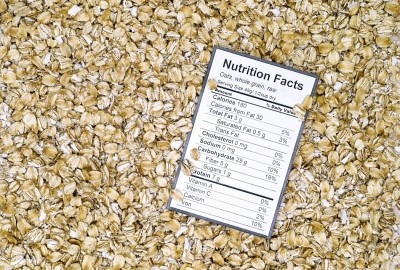Should ecommerce retailers be responsible for providing nutritional labeling?

“Historically, retailers were not responsible for providing [Nutrition Facts, allergen and other ingredient information], as it is required on product labels,” but the rapid rise of ecommerce grocery sales before and during the pandemic “raises questions of which entity along the supply chain is responsible for ensuring that consumers can access required product label information and which regulatory agency has authority to require it,” researchers from the NYU School of Global Public Health and the Friedman School of Nutrition Science and Policy at Tufts University argue in a study published today in Public Health Nutrition.
They argue that current regulations requiring product manufacturers to prominently displace the Nutrition Facts, Ingredient List, allergen warnings and other essential safety information on packaging allows brick-and-mortar shoppers to easily access information that is critical to their health and safety.
However, they note, since these regulations were passed how consumers buy food has shifted dramatically, with online grocery sales in the US tripling from 3.4% to 10.2% of total grocery sales from 2019 to 2020. In these cases, consumers are not able to pick up and examine each item – rather they rely on ecommerce retailers to make this information readily available.
According to their research, online retailers are falling woefully short of providing FDA-required food labeling.
'Present, conspicuous and legible' nutrition labeling rarely offered online
A review of 10 major products ranging from cereal to bread to drinks to other common kitchen staples sold across nine online retailers found Nutrition Facts Panels, ingredient lists, common food allergens and the percent of juice in fruit drinks was “present, conspicuous and legible for an average of only 36.5% of the products surveyed, ranging from 11.4% for potential allergens to 54.2% for ingredient lists.”
Specially, the researchers found the Nutrition Facts Panel was present, conspicuous and legible for 45.7% of the ten products across the retailers and the ingredient list was present, conspicuous and legible for 54.2% of all observations.
“The least consistently disclosed required information was common food allergens, not present for 63.5% of products that contain common allergens,” the researchers note.
Likewise, the percent of juice was not present for 38.3% of fruit drinks, the study notes.
Marketing claims abound
Much more often, marketing claims that can mislead consumers about a product’s healthfulness were more prominently displayed or promoted, according to the research, which found voluntary nutrition-related claims were “prominently and conspicuously displayed” on average 63.5% of the time across retailers and products.
“Online retailers also displayed such claims directly in the webpage texts themselves across 38.8% of products,” the study adds – cautioning that retailers ability to track and target individuals “means that the information could be withheld from shoppers to promote specific brands.”
The researchers further warn that “the failure of online food retailers to consistently disclose required information may implicate health and safety concerns for consumers who depend on it, as in the case of allergens, [sodium] or sugar; and others who may benefit from its provision.”
A call to action
Given these risks, they call on the Food Drug Administration, the US Department of Agriculture and the Federal Trade Commission to revise current regulations to specify that “at a minimum” online retailers should make required nutrition information panels “immediately visible and legible under ordinary purchase conditions online.”
They add that each agency already has authority to clarify and enforce these disclosures.











